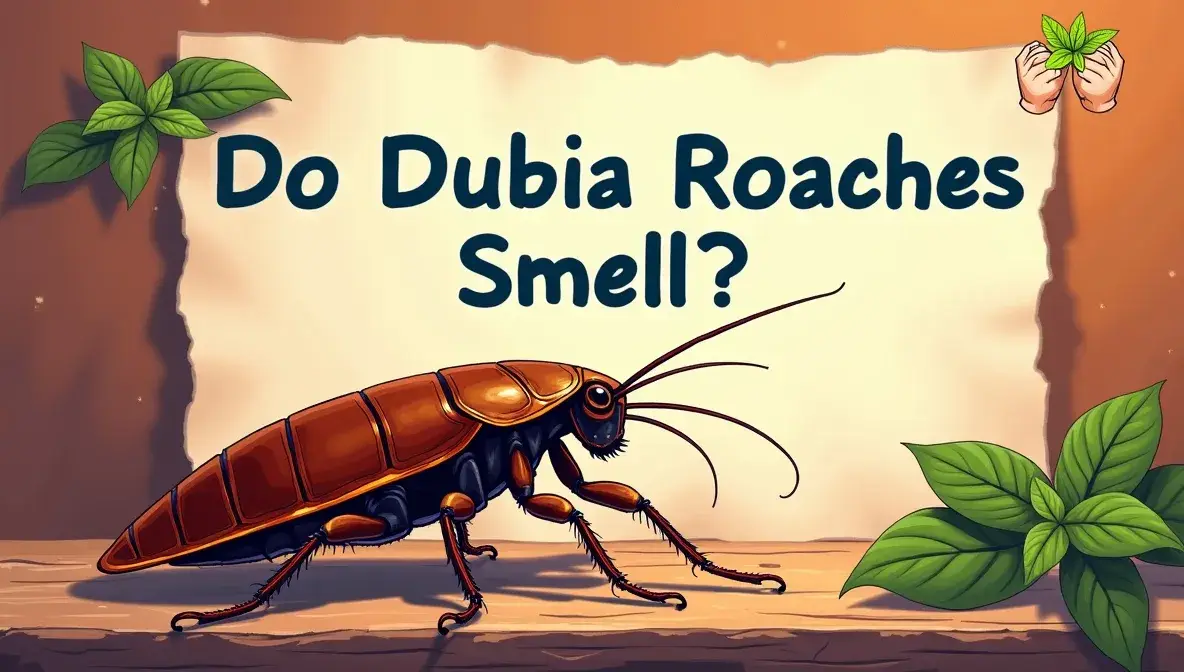If you’ve ever considered keeping Dubia roaches, whether as feeder insects for your reptiles or as part of a breeding colony, you might wonder: do Dubia roaches smell? This is a common concern among reptile enthusiasts and pet keepers who want to avoid unpleasant odors in their homes. The good news? Compared to other feeder insects, Dubia roaches are known for being surprisingly clean and odorless. However, there are a few factors that can influence whether or not they develop a noticeable smell.
In this blog post, we’ll explore the question of whether Dubia roaches smell, what causes insect odors in general, and how you can maintain a colony that’s fresh and clean. By the end, you’ll have all the information you need to decide if Dubia roaches are the right choice for you—and how to care for them properly.
Why Dubia Roaches Are Popular Among Reptile Owners
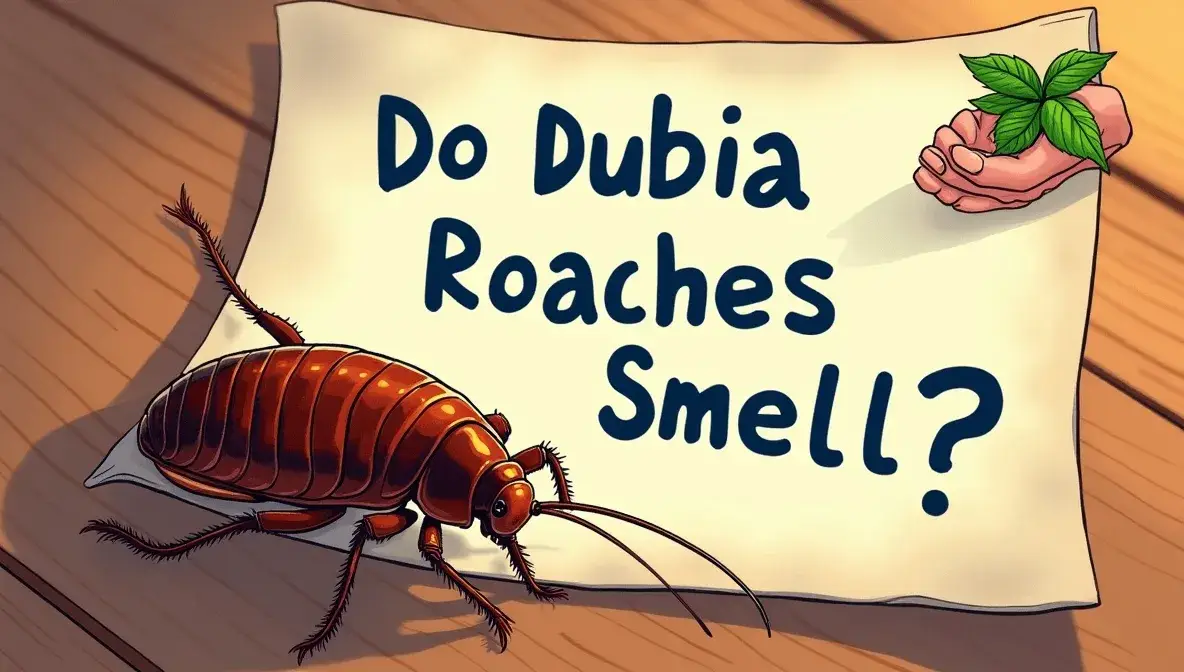
Dubia roaches (scientific name: Blaptica dubia) are highly regarded as feeder insects for reptiles, amphibians, and other insectivorous pets. Unlike crickets, which are notorious for their noise and strong odor, Dubia roaches are quiet, relatively easy to care for, and emit little to no smell when properly maintained. These qualities have made them a top choice for pet owners and breeders alike.
However, like any living creature, Dubia roaches can produce odors under certain conditions. To understand why this happens—and how to prevent it—let’s dive deeper into the factors that affect roach odor.
Do Dubia Roaches Smell? The Short Answer
In ideal conditions, Dubia roaches do not emit any noticeable odor. They are naturally clean insects that lack the pungent smell associated with other feeder bugs, like crickets or mealworms. In fact, many owners report that their Dubia colonies smell like nothing at all.
However, a poorly maintained setup can lead to unpleasant odors. The smell usually comes not from the roaches themselves but from their waste, uneaten food, or mold and bacteria growing in their enclosure. By keeping their habitat clean and providing proper care, you can avoid these issues entirely.
What Causes Odors in Dubia Roach Colonies?
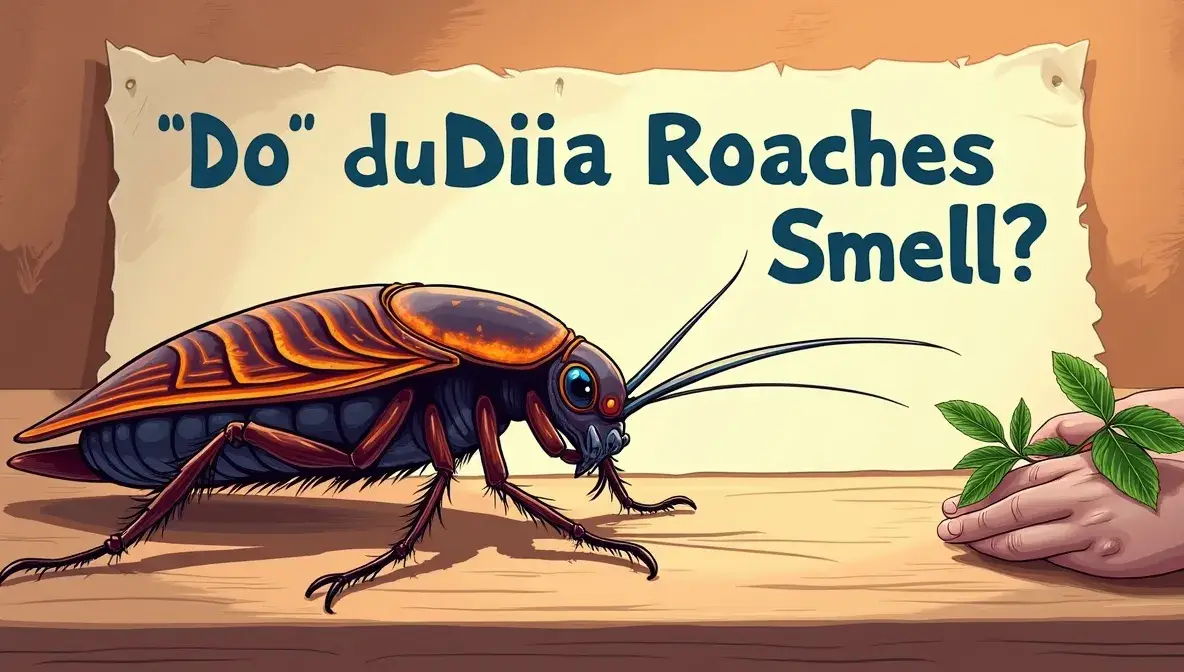
To keep your Dubia roaches odor-free, it’s important to understand what might cause unpleasant smells in the first place. Here are the most common culprits:
Accumulation of Waste
Dubia roaches produce frass (insect droppings), which can build up over time if not cleaned regularly. While their waste is relatively dry and less odorous compared to other insects, a dirty enclosure can start to smell if frass is allowed to sit for too long.
Uneaten Food
Dubia roaches thrive on a diet of fresh fruits, vegetables, and high-quality insect chow. However, uneaten food can quickly spoil, especially in the warm, humid environment of their enclosure. Rotting food is one of the most common causes of unpleasant smells in a Dubia roach colony.
Moisture and Mold
Moisture is essential for Dubia roaches, as they need a humid environment to stay healthy. However, too much moisture can lead to mold growth, which emits a strong, musty odor. Mold can also be harmful to your roaches, so it’s important to maintain the right balance of humidity.
Overcrowding
An overcrowded enclosure can lead to higher levels of waste, more uneaten food, and poor ventilation—all of which contribute to odor problems. Ensuring your roaches have enough space is crucial for both their health and the cleanliness of their habitat.
How to Prevent Dubia Roach Odors
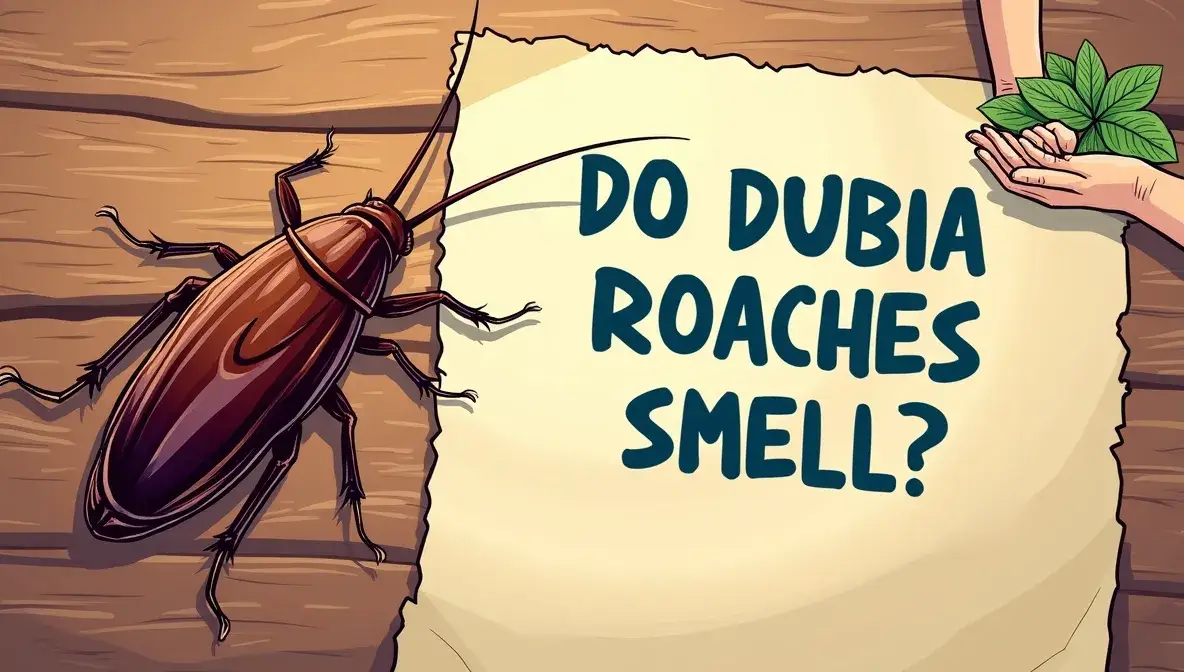
The key to keeping your Dubia roach colony odor-free is proper maintenance and care. Here are some actionable tips to ensure your setup stays clean and fresh:
Clean the Enclosure Regularly
- Remove uneaten food daily to prevent spoilage.
- Spot-clean frass and waste every few days.
- Perform a deep cleaning of the enclosure every 4–6 weeks. This includes removing all roaches, washing the container with warm soapy water, and replacing any substrate or egg cartons.
Provide Proper Ventilation
Good airflow is essential for preventing mold and reducing humidity levels. Use an enclosure with a well-ventilated lid or add mesh panels to allow for adequate ventilation.
Control Humidity Levels
While Dubia roaches need humidity to survive, aim for a range of 40–60%. Use a hygrometer to monitor humidity levels, and avoid over-misting the enclosure.
Feed Them Properly
Offer fresh, high-quality food that your roaches will eat quickly. Remove any uneaten food within 24 hours to prevent it from spoiling. Popular food options include:
- Carrots
- Apples
- Sweet potatoes
- Leafy greens
- Commercial insect chow
Avoid Overcrowding
To prevent overcrowding, ensure your enclosure is appropriately sized for the number of roaches you’re keeping. A general rule of thumb is to allow about 1 gallon of space for every 100 adult roaches.
Benefits of Dubia Roaches Over Other Feeder Insects
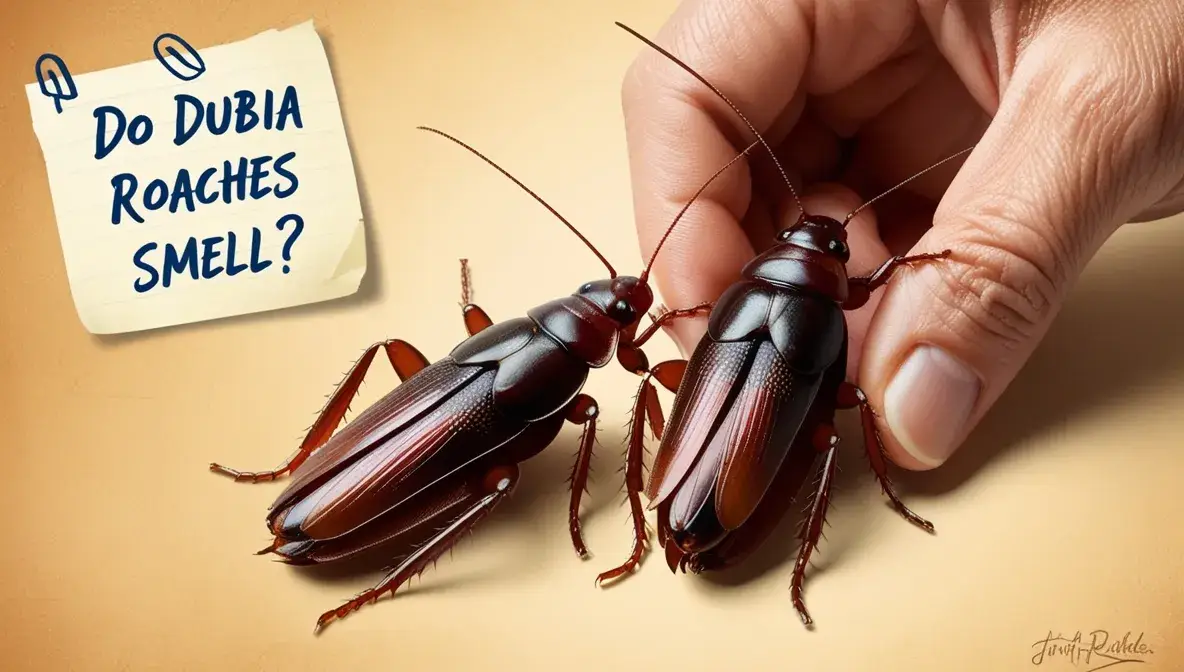
If you’re still on the fence about keeping Dubia roaches, here are a few reasons why they’re a superior option compared to other feeder insects:
- Low Odor: As we’ve discussed, Dubia roaches are virtually odorless when cared for correctly.
- Quiet: Unlike crickets, which chirp constantly, Dubia roaches are completely silent.
- Cleanliness: They don’t climb smooth surfaces, jump, or fly, making them easy to contain and manage.
- Nutritional Value: Dubia roaches are packed with protein, making them an excellent choice for your reptile’s diet.
Common Misconceptions About Dubia Roaches
“All Roaches Smell Bad”
This is a misconception rooted in experiences with pest species like German cockroaches. Dubia roaches are tropical, non-invasive insects that live in clean, controlled environments. When properly cared for, they are odor-free.
“Roaches Are Dirty”
Dubia roaches are actually very clean insects. They groom themselves regularly and don’t carry the same bacteria or pathogens associated with pest roaches.
Quick Tips for a Fresh-Smelling Roach Colony
- Use a high-quality substrate, such as coconut fiber, that absorbs moisture and odors.
- Avoid overfeeding to minimize leftover food.
- Place the enclosure in a well-ventilated area away from direct sunlight or excessive heat.
Conclusion
So, do Dubia roaches smell? The answer is no—at least, not when they’re cared for properly. With regular maintenance, proper ventilation, and attention to their diet and environment, you can easily avoid any unpleasant odors from your Dubia roach colony.
Dubia roaches are a fantastic option for reptile owners seeking a low-maintenance, odor-free feeder insect. Their clean nature, quiet behavior, and high nutritional value make them a top choice for pet enthusiasts.
If you’re ready to start your own Dubia roach colony or are considering adding them to your pet care routine, follow the tips in this guide to ensure a fresh and healthy setup. Have questions or experiences with Dubia roaches? Share your thoughts in the comments below—we’d love to hear from you! Drguidez.

Mark Manson is an expert blogger specializing in Dubia Roaches. He shares practical care tips, breeding insights, and feeding advice to help enthusiasts and reptile owners thrive.

